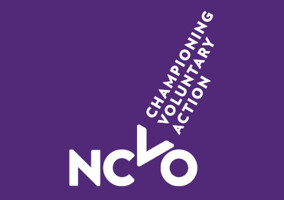Charities need to build flexible working into their recruitment processes to attract and retain good members of staff, the chief executive of the Kite Trust said this week.
Pip Gardner was speaking at the launch of NCVO’s Road Ahead report on Tuesday. They urged charity employers to prioritise flexible working options that go beyond having working from home as an option.
Gardner said: “For me, the pandemic has really shone a light on the interconnectedness of our actions and outcomes; from the local and the individual, right up to the global.
“When we think about that, in terms of the future of work, and we think about supporting the charity sector workforce right now and into the future, I think that needs us to prioritise flexible working, and to be responsive employers of both staff and volunteers.”
They added that the face people are living with long Covid and mental health conditions is “going to make access needs and caring responsibilities more common in our teams in 2022 and beyond”.
Gardner also highlighted that “systemic inequalities” mean people of colour, people with disabilities, and LGBTQ+ people are more likely to be affected by additional barriers.
People thrive in ‘cultures of trust’
Gardner said that from their experience “flexible working and cultures of trust” mean that everyone is able to “better meet their health needs and their caring responsibilities”.
When it comes to recruiting, which is a challenge for many charities at the moment, they said jobseekers are partly looking for flexible terms “so that they can be part of their communities and continue to be part of their communities through volunteering alongside their role in a charity”.
Gardner highlighted the importance of good job design, which “outlines the possible flexibility in those roles from the recruitment stage, to be able to attract good candidates to our teams”.
They added: “We also need to understand that people circumstances change.
“And if we've learned anything from the last year and thinking about the year ahead, it's that those circumstances will change and we cannot make really solid predictions right now. But we can't predict we will need to be able to be flexible.”
They also urged other charities to consider what entry level roles could be created.
“We're seeing youth unemployment and youth mental health both increasing concerns right now,” they said. “How does the charity sector create entry level roles that can support and respond to young people's needs in this particular moment in 2022.”
‘Bringing their whole selves to work’
Gardner emphasised that flexibility was not just about working from home.
“What we really need to see in the workforce is attitude and will change towards flexibility,” they said.
The suggested that things like core hours, part time contracts, annualised hours, job shares lead to genuine flexibility.
Gardner also urged charity leaders to consider how flexible working approaches can help create caring workplaces.
“I think the other element that flexible working brings to the charity sector workforce is allowing people to bring their whole selves to work,” they said.
They described experience of the pandemic as “shared crisis and shared trauma”. And said: “We really need to address that head on, ideally with a trauma-informed approach so that we can be caring employers because the charity sector is caught is a caring sector.”
“And if we can't do that for our own employees, then it's going to be a challenge to do that for our beneficiaries as well.”
‘We need more money to employ staff to do less’
When asked about how to support staff at who have been working hard throughout the pandemic, Gardner urged charities to look at what support was available locally.
The Kite Trust supports LGBTQ+ young people in Cambridgeshire and Peterborough and Gardner said the charity had been able to access support by collaborating with the local public sector.
They said: “The CCG [Clinical Commissioning Group] have set up a variety of different services around health and wellbeing, and through that as a charity we were able to access vaccination through our staff as priority health and social care workers, and then to be able to access mental health support for them when they need it.”
Gardner said that in terms of balancing people’s need for a rest with ever increasing pressures as it is “somewhat of an impossible question”.
“There are limited resources and I guess at the core, what I would say is that it's just not possible to push people further and further and that to have a positive outcome,” they said.
They added that there is a “there is a particular point here to any funders” about taking this into account when looking at applications for funding.
“I feel that we need more money to employ staff to do less. That is just a realistic situation that we are in - that staff still need to meet their living costs [but] it is not feasible for everybody to go down to part time hours, or to take that career break to have that rest.”
Charity leaders should also consider what they can do to reduce people's workloads.
“We need to look at in how we plan workloads and how we plan organisational work plans to realise that we can't keep asking staff to do more,” they said.
“And we need to figure that into fundraising strategies and planning out what our focus areas are and I think for me, that also comes back to collaboration and really strong links, where there are maybe services that that means you need to deprioritise.”
Gardner is part of an NCVO and ACEVO project on flexible working that will make recommendations later this year.
Related articles












